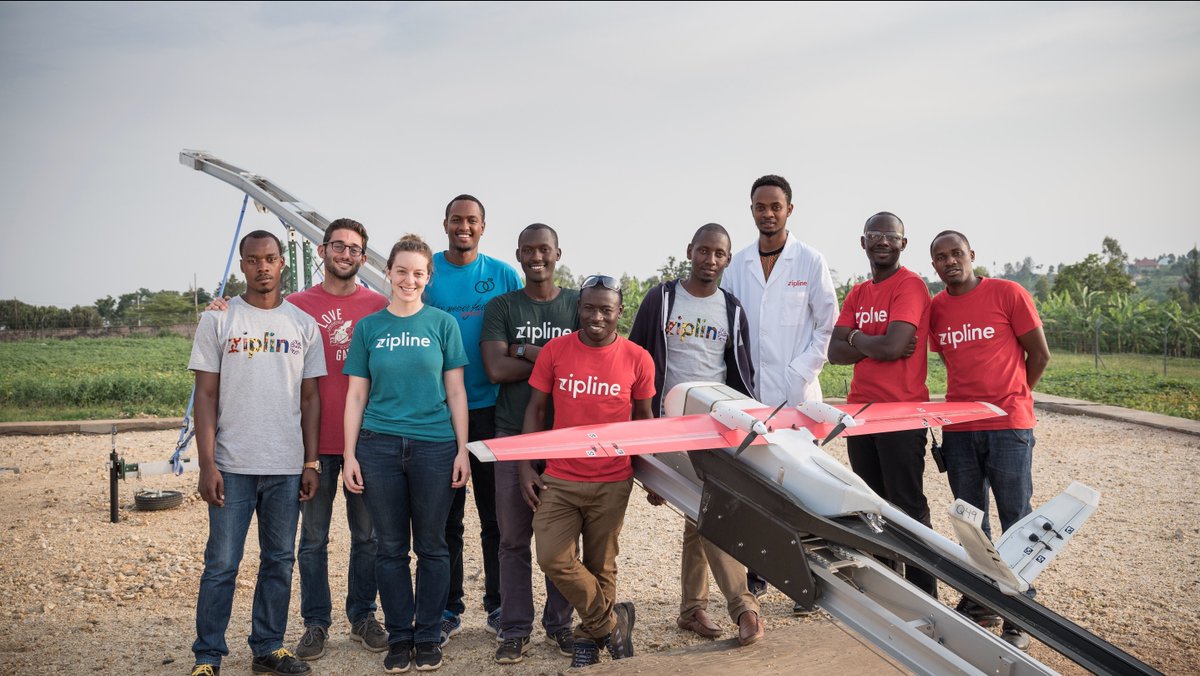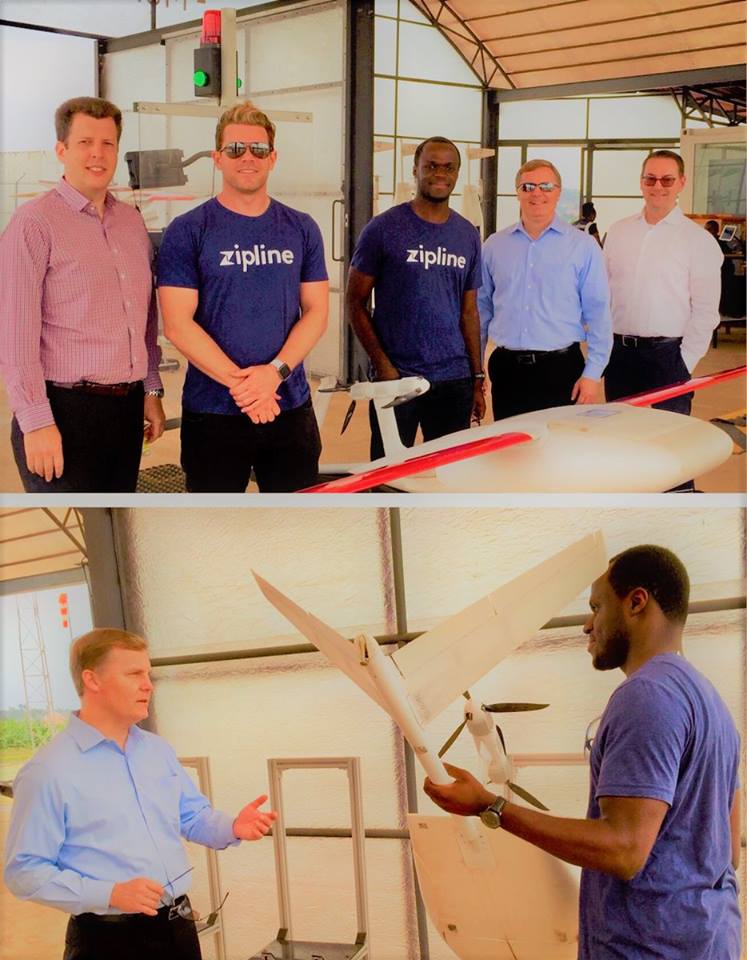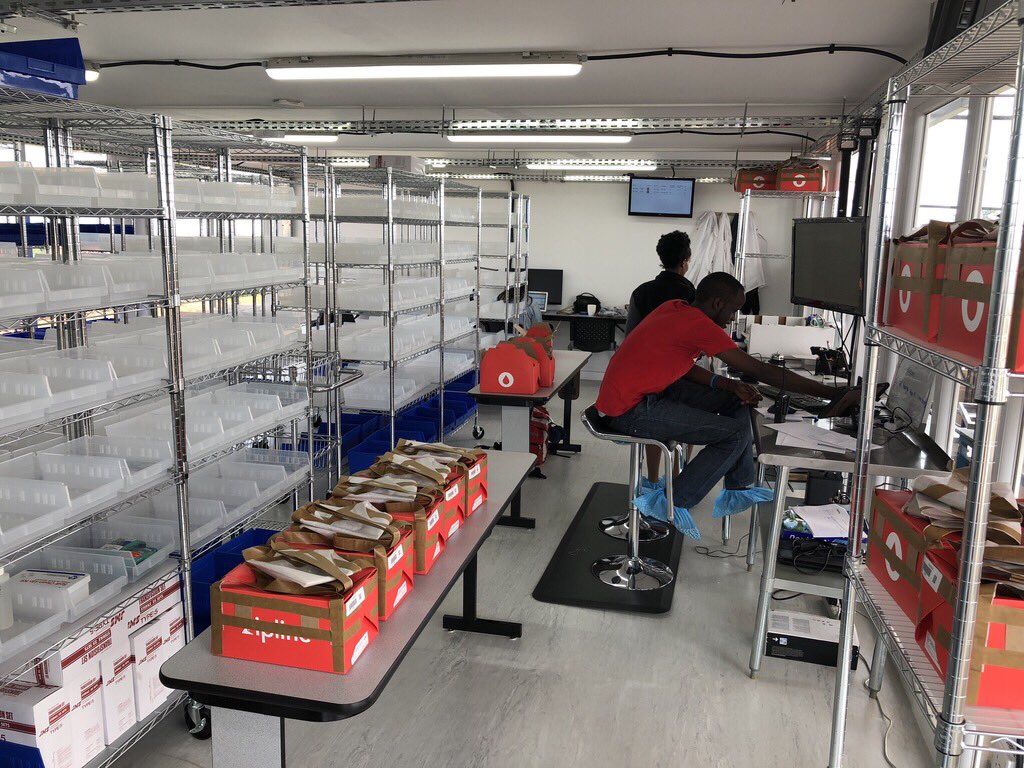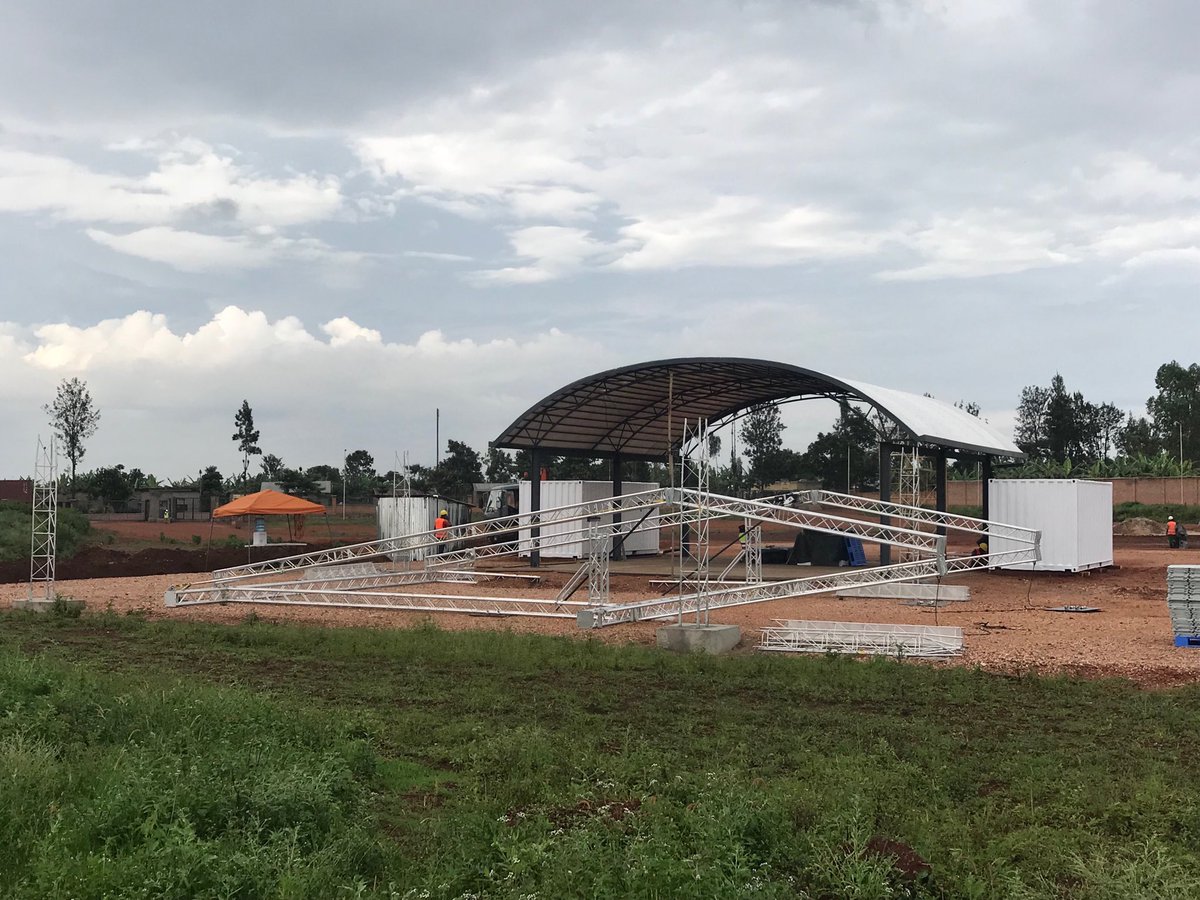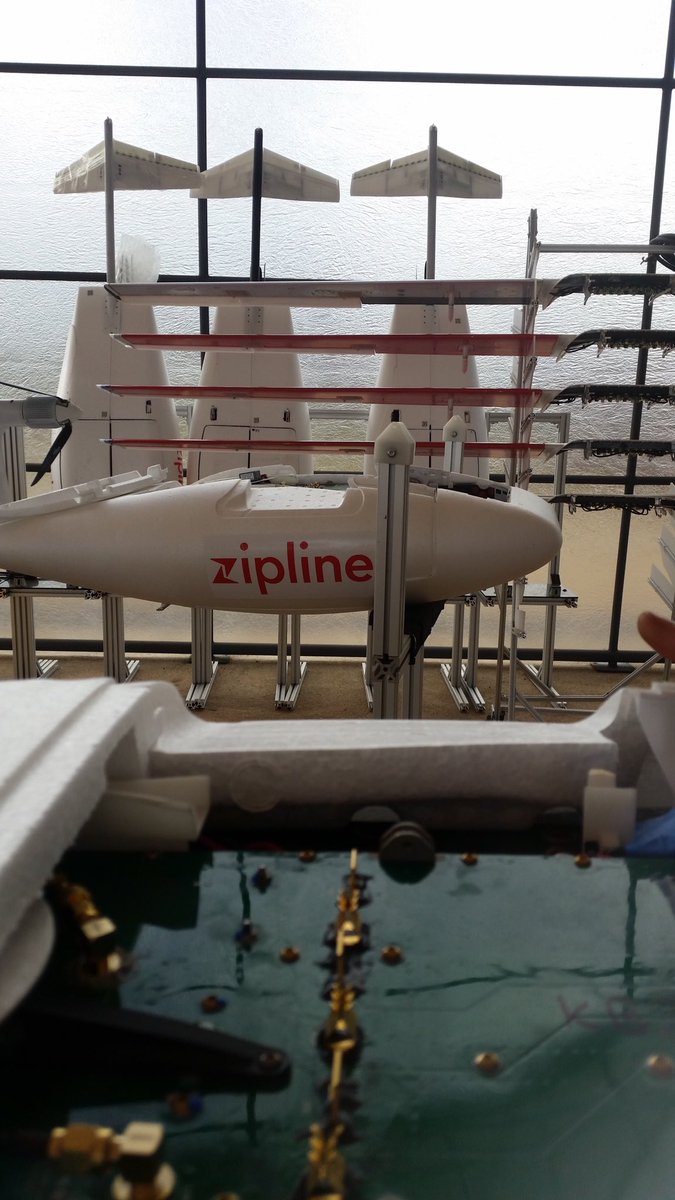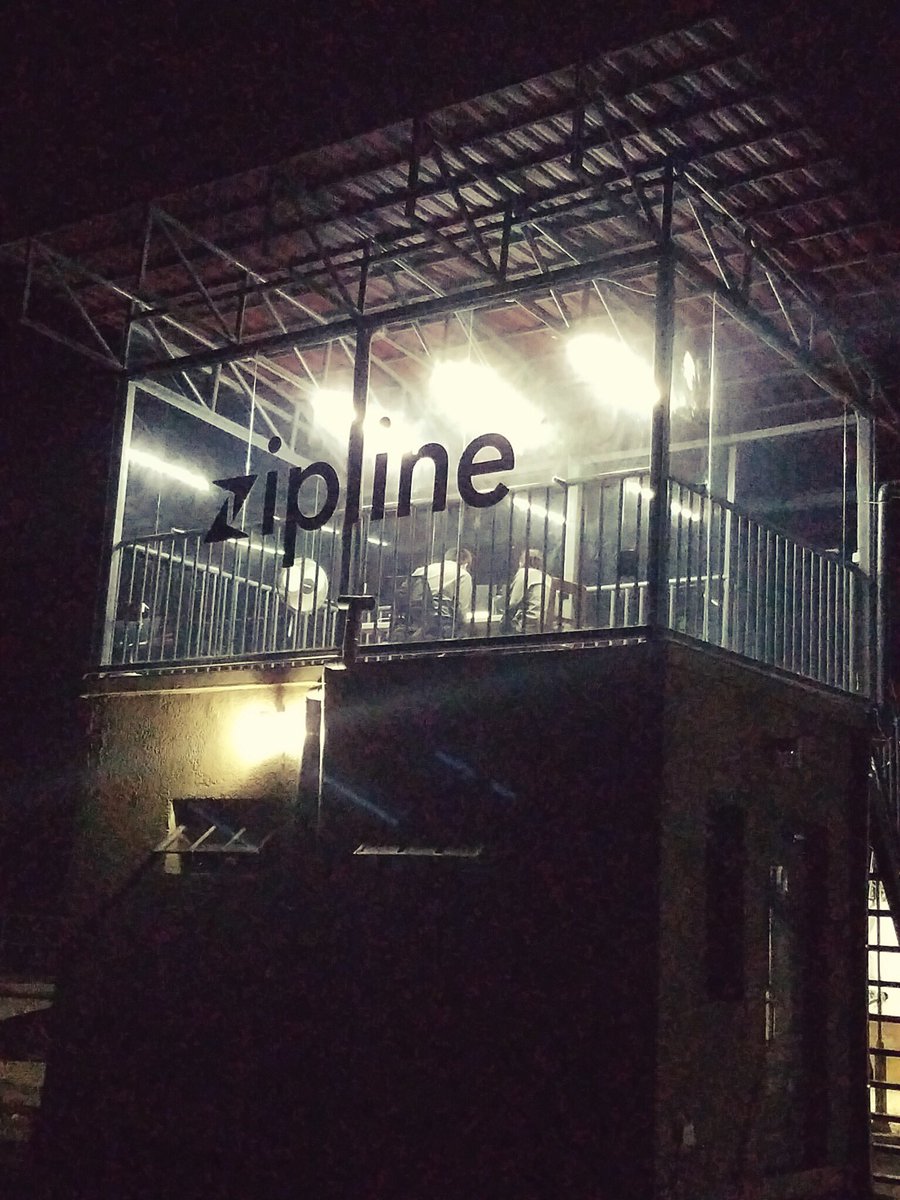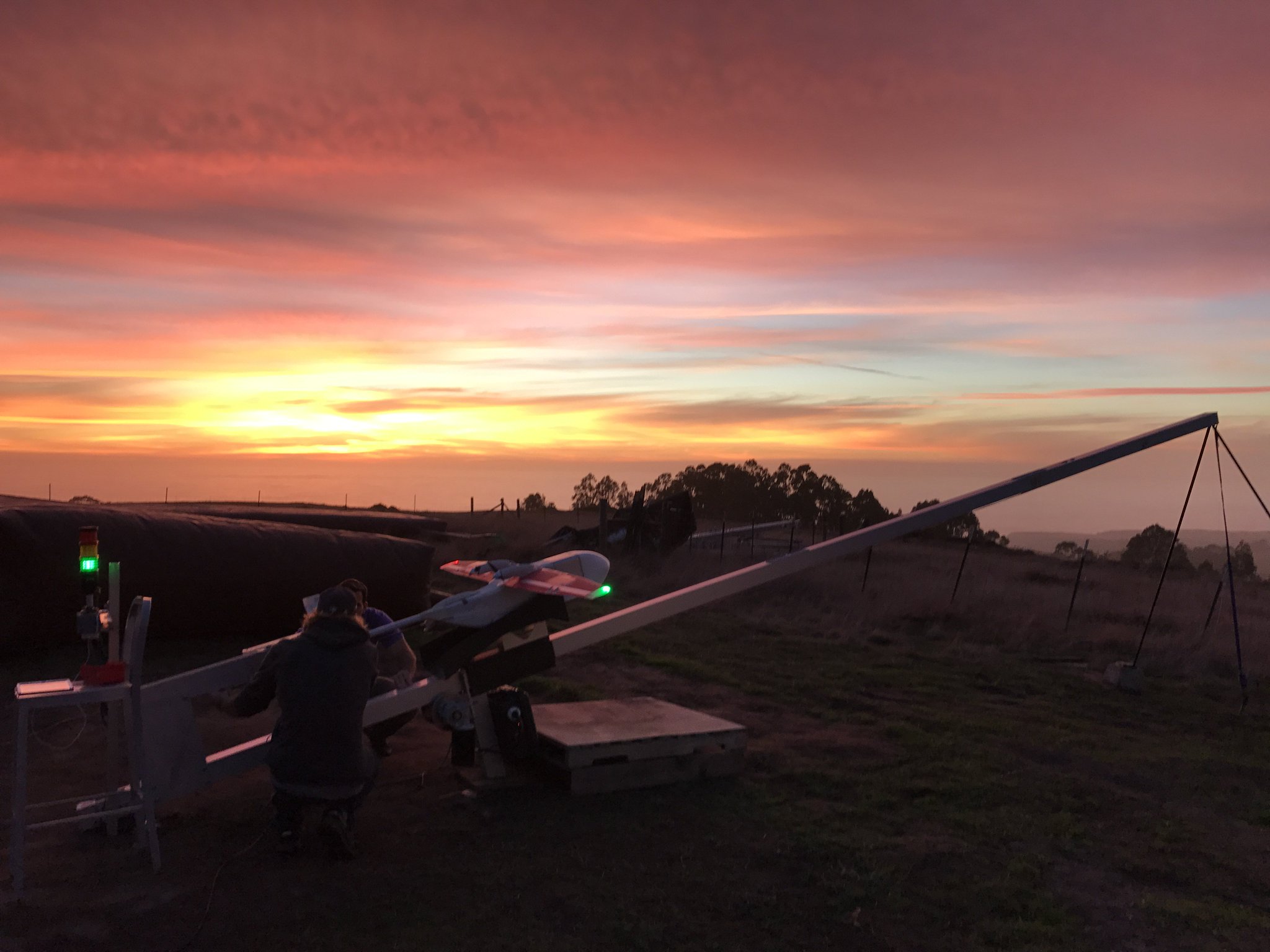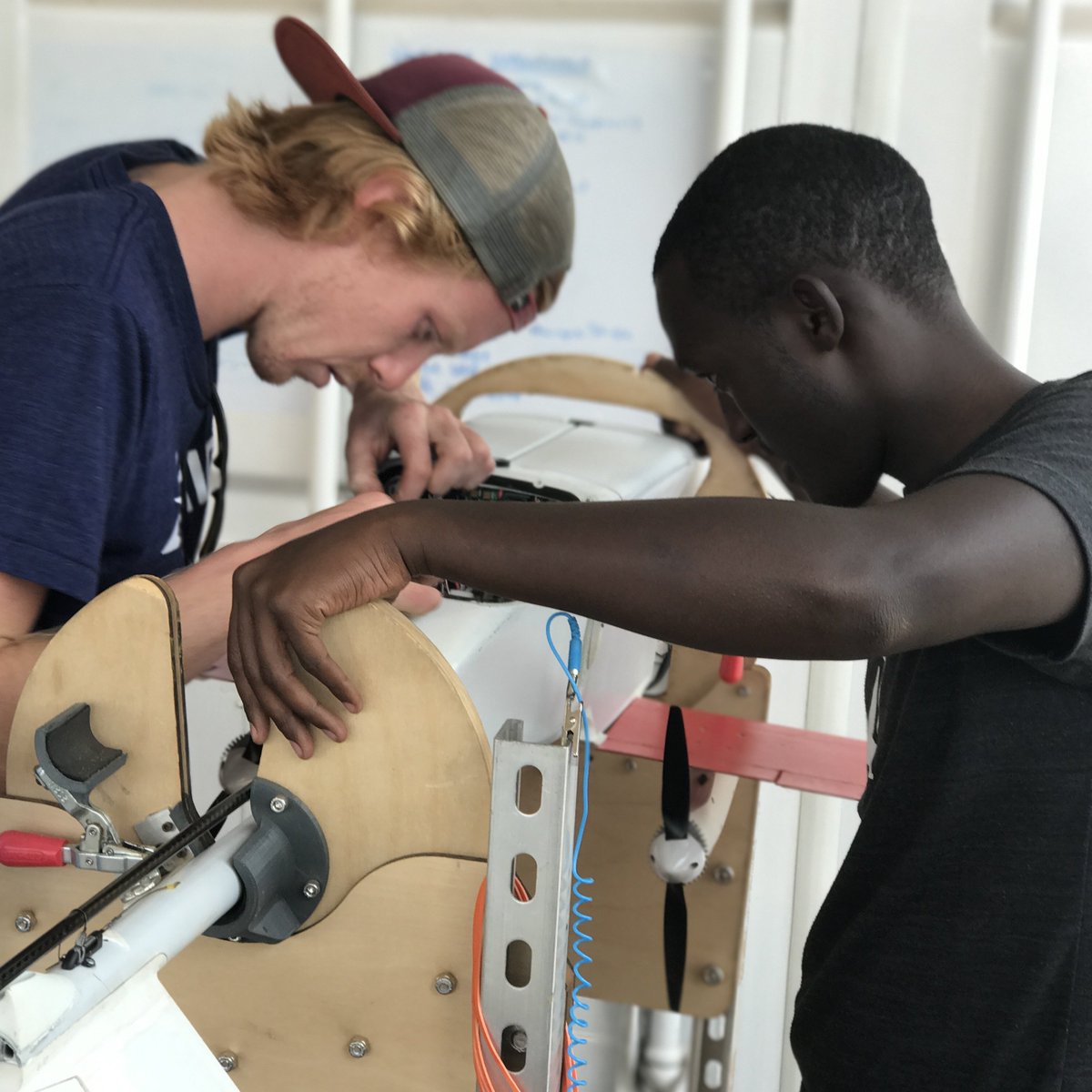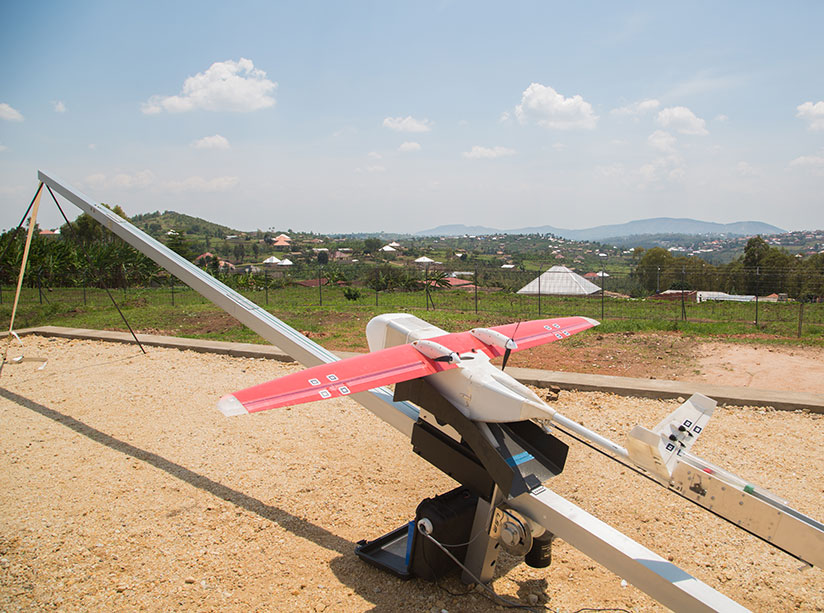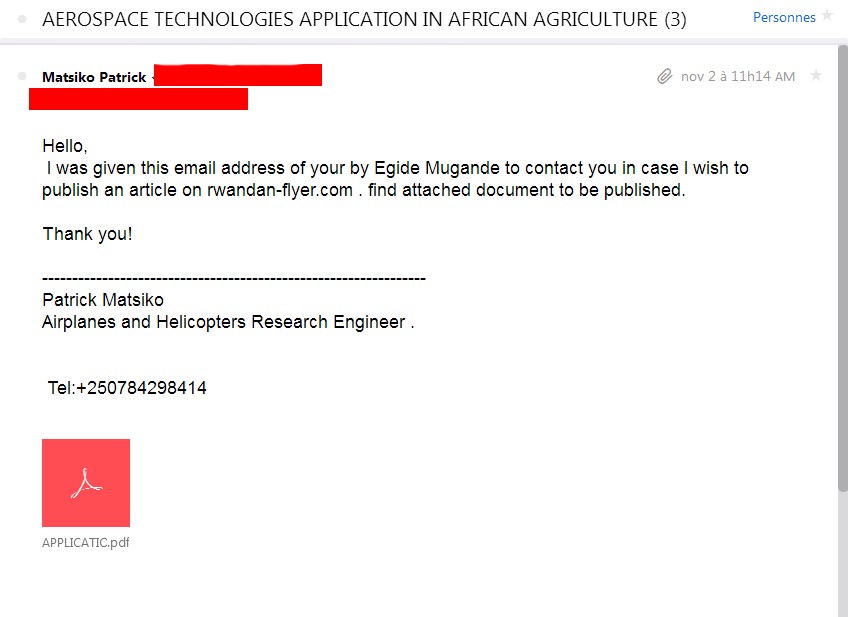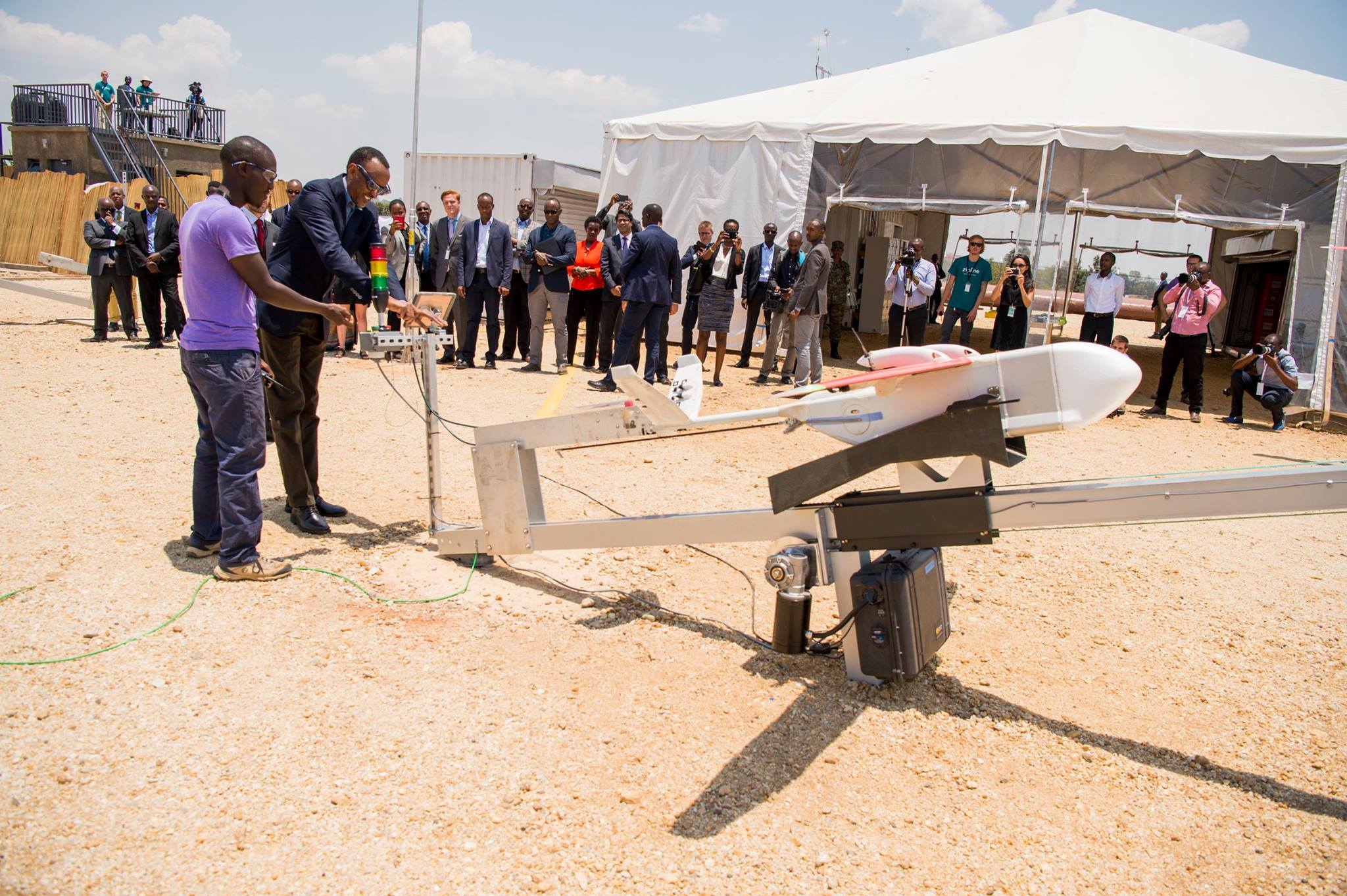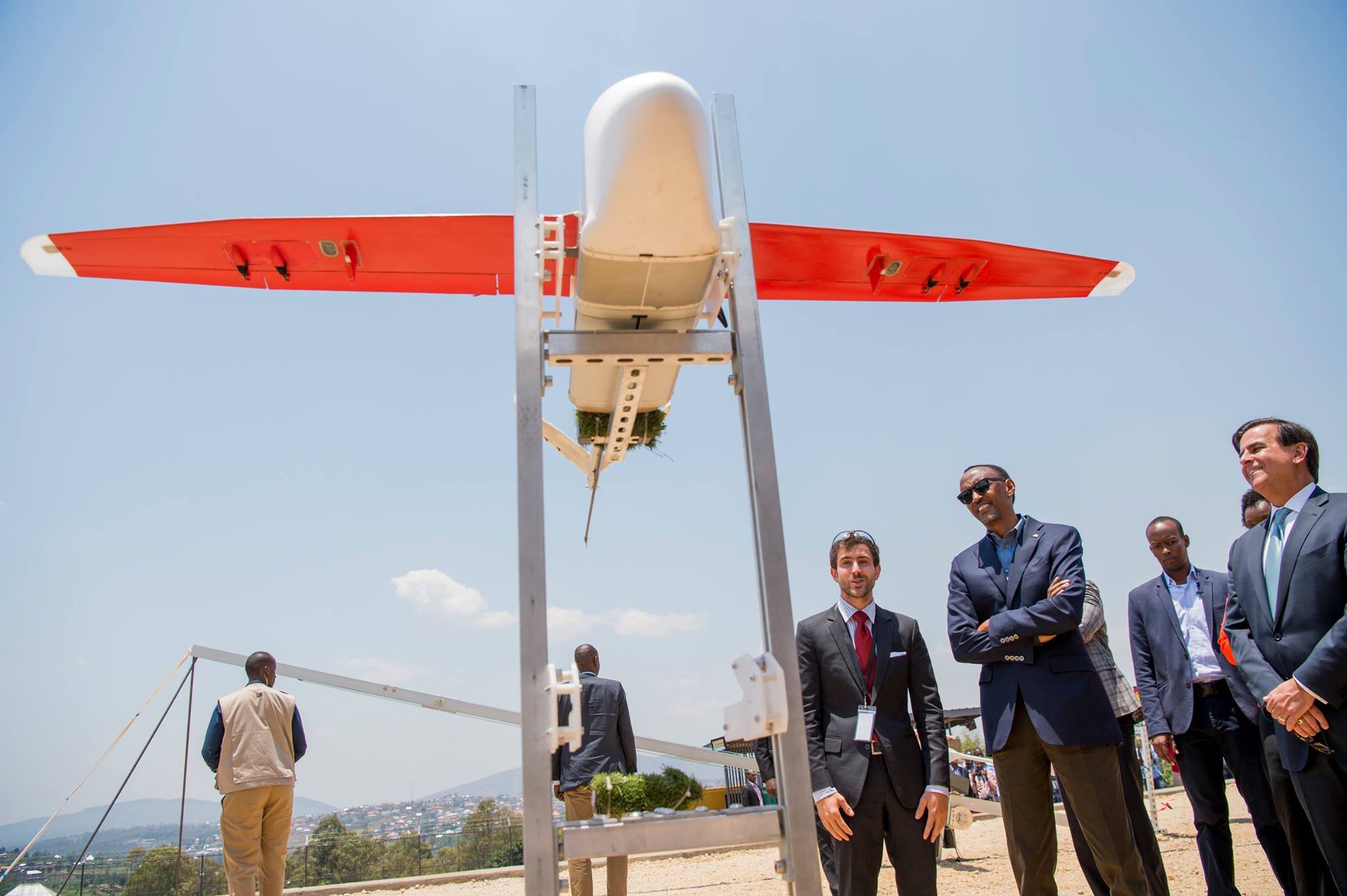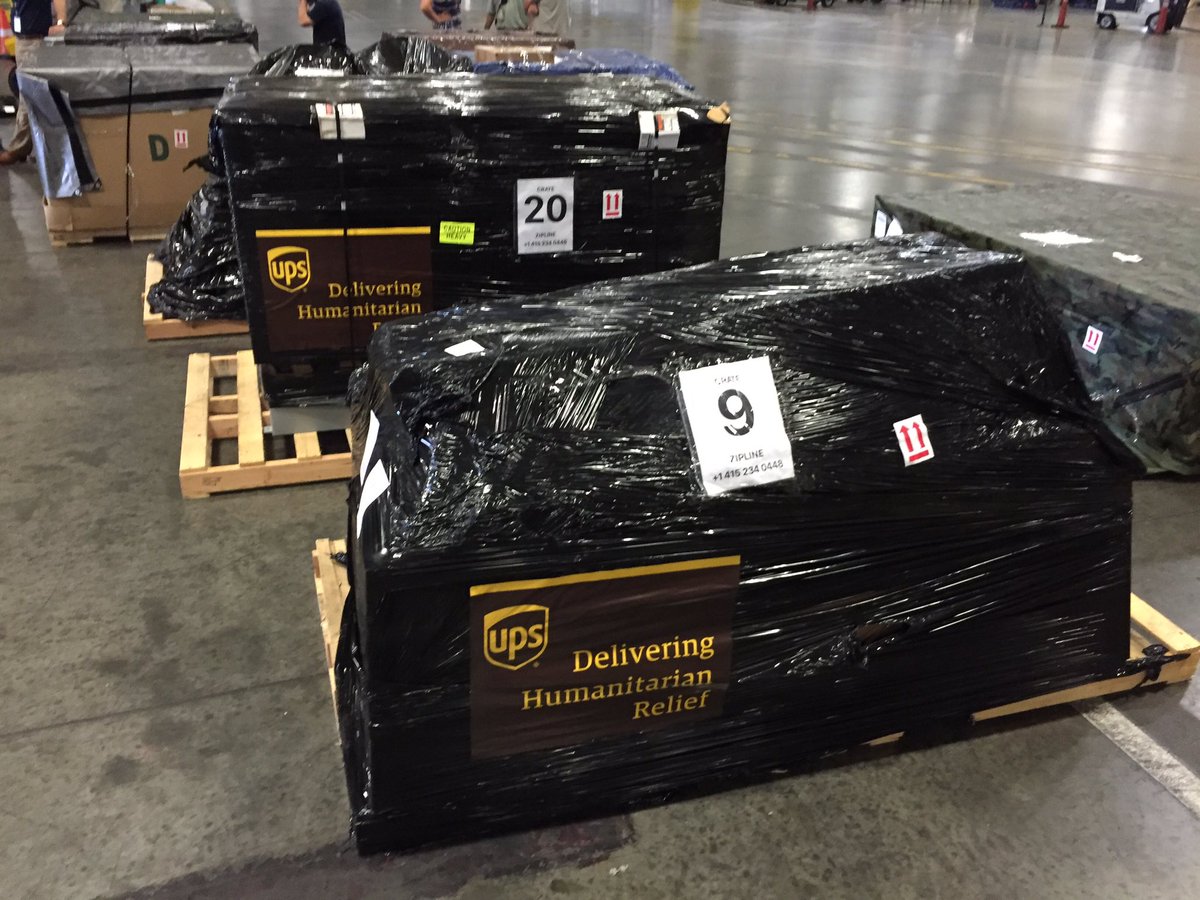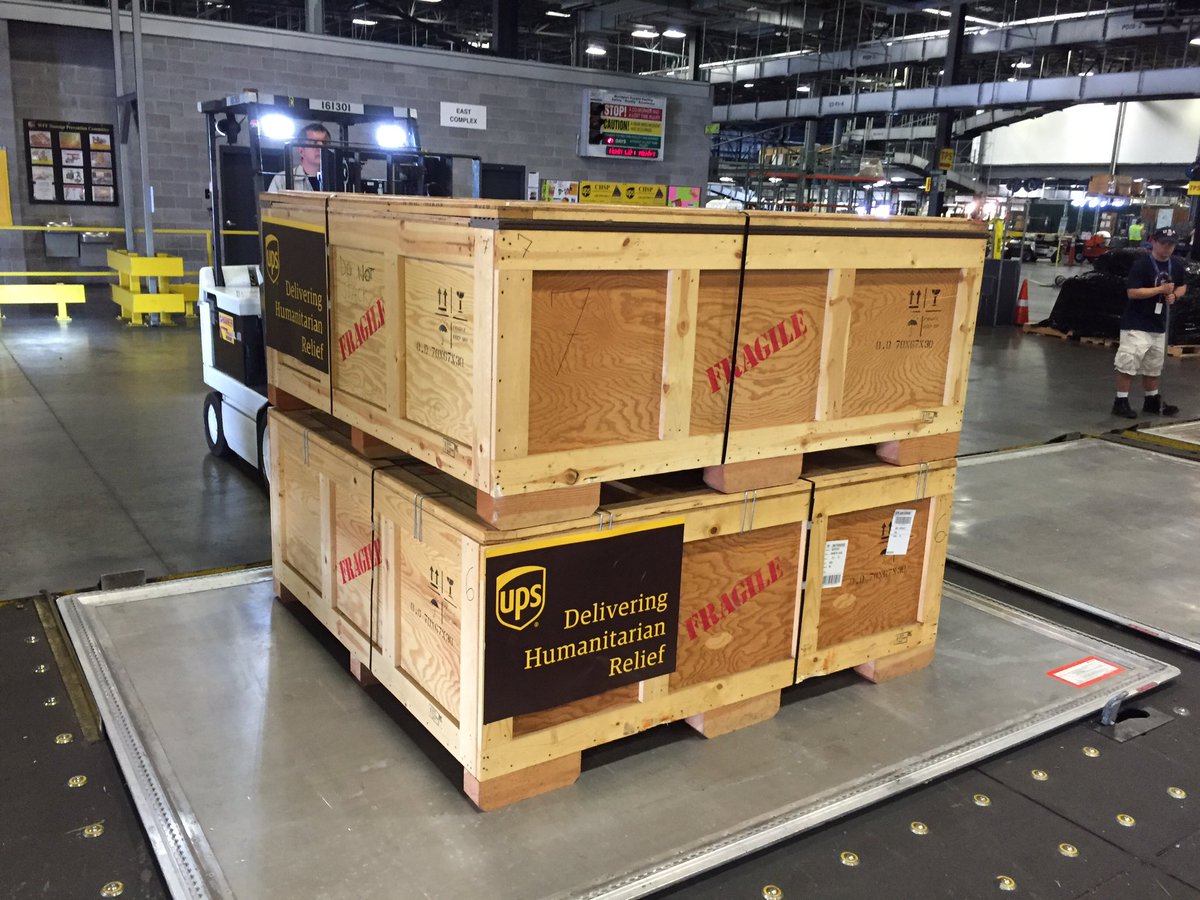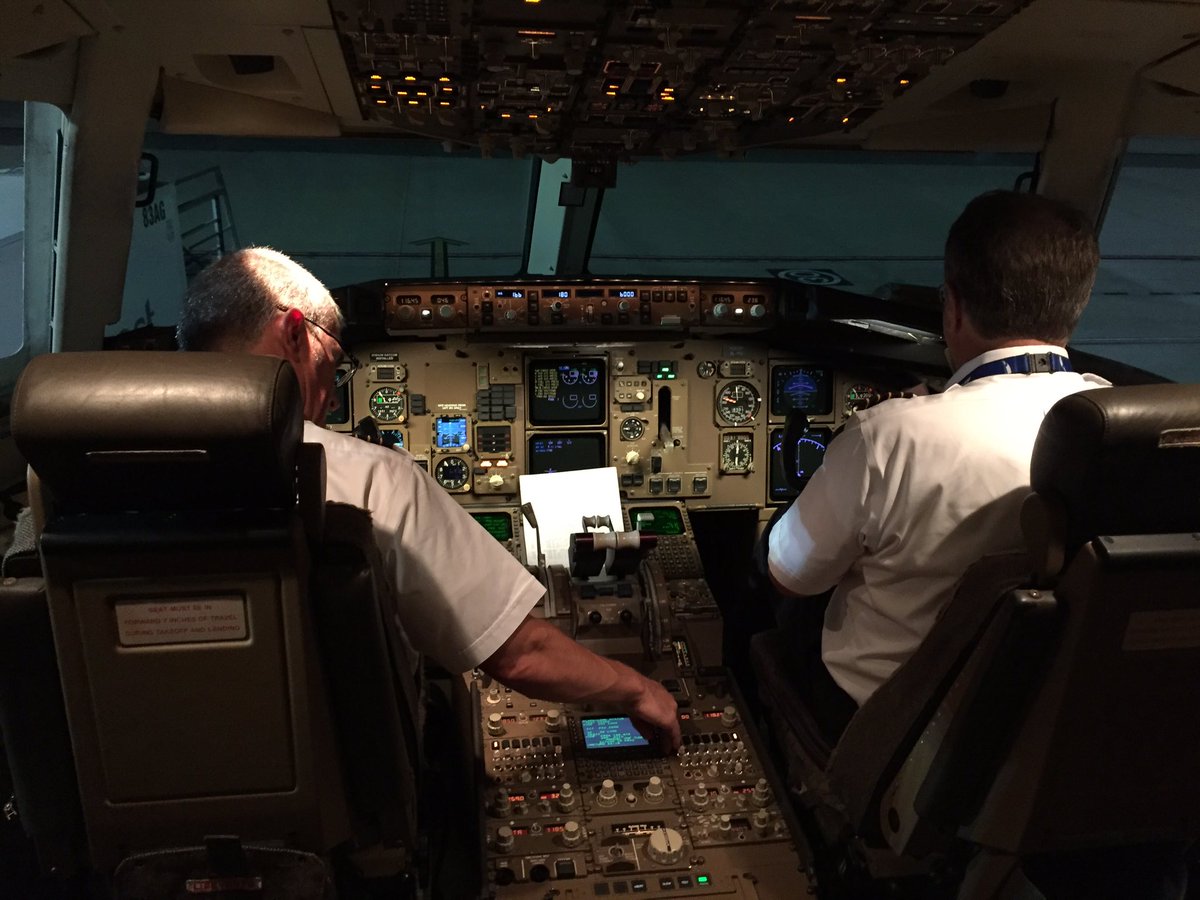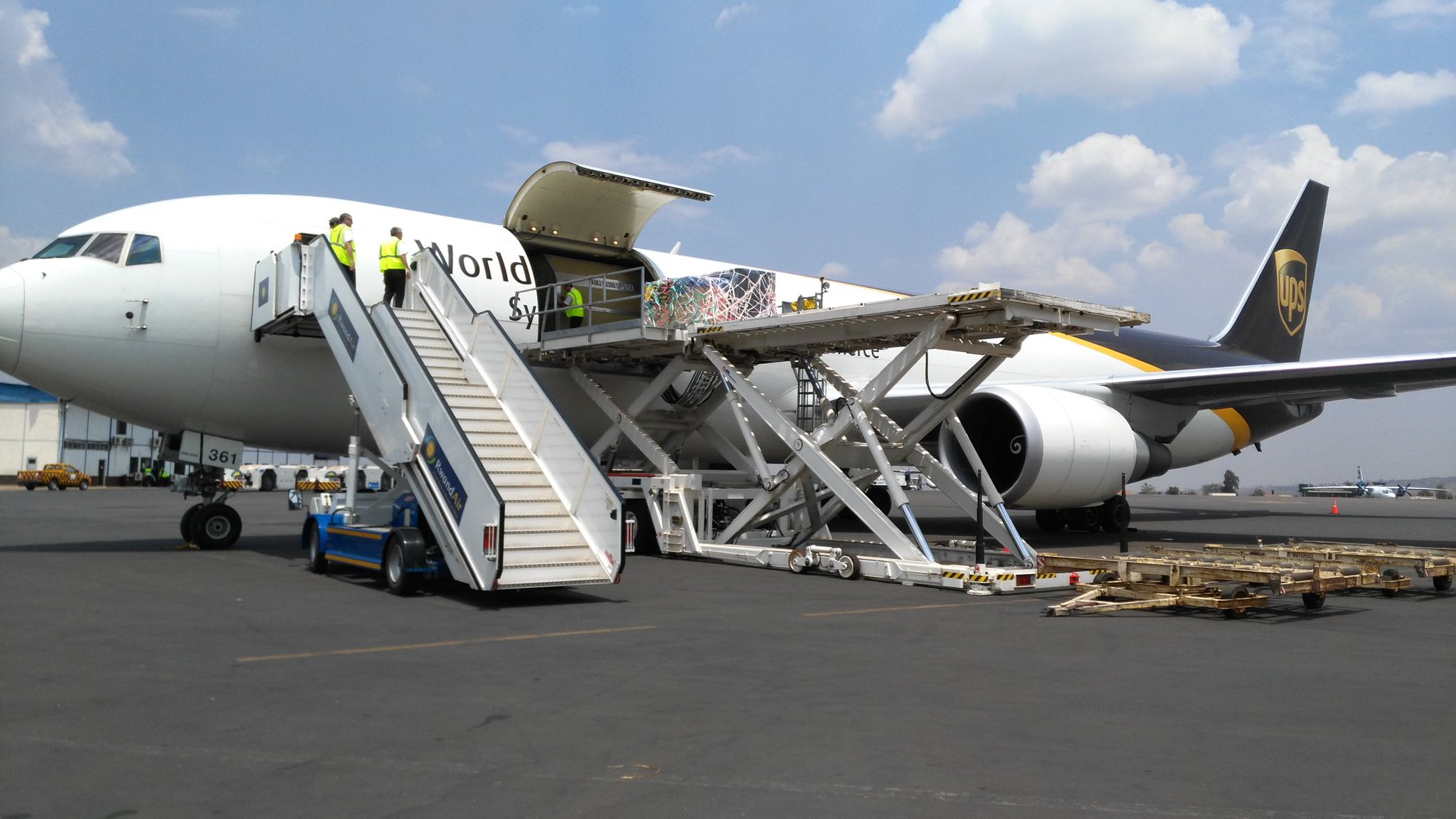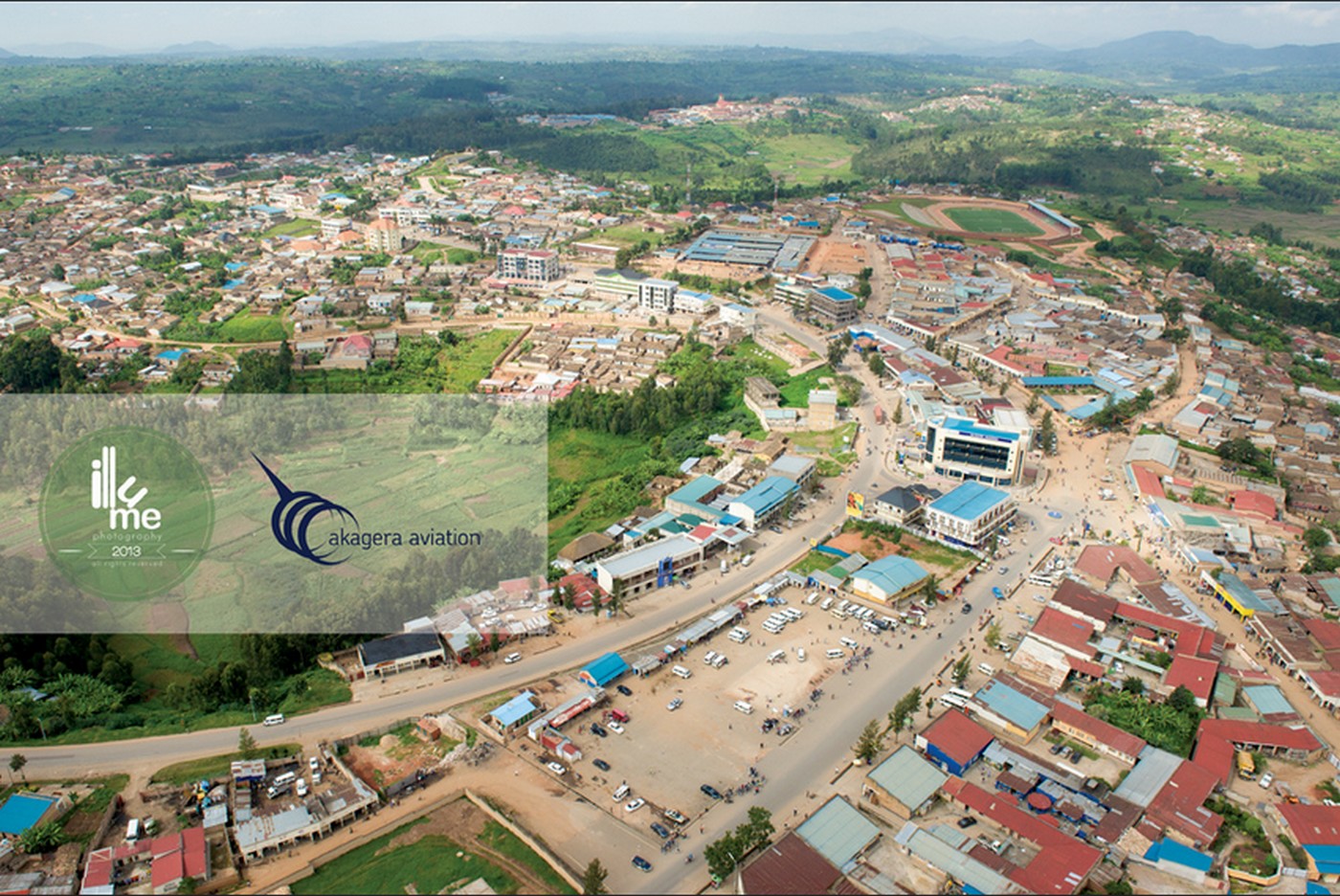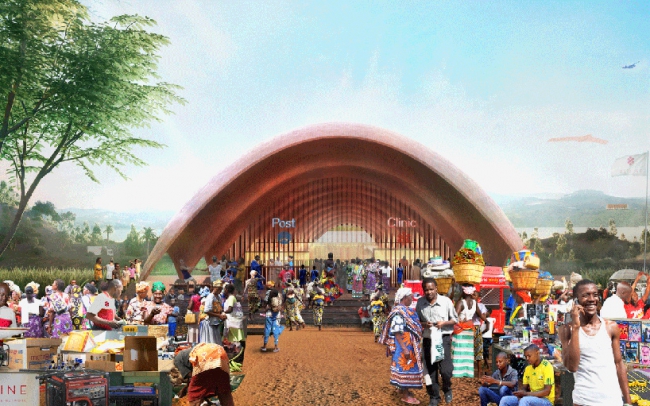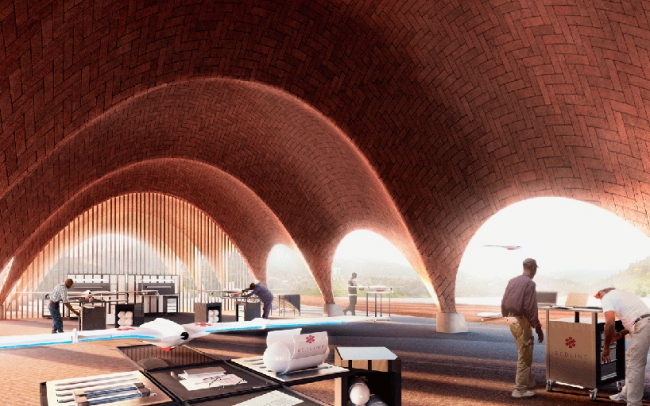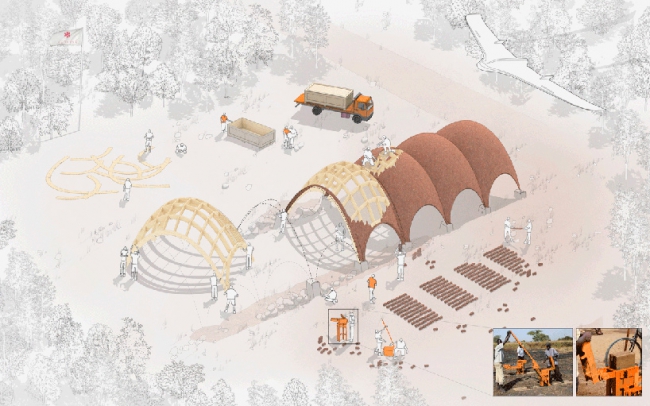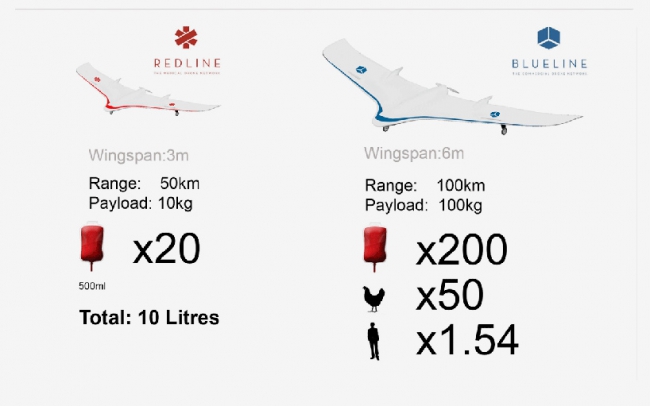Rwanda Droneport Zipeline [Infos, Photos, Videos]
If you want to work, for Zipline, it's HERE
11 MARCH 2019
The FAACompte certifié @FAANews
#FAA International Affairs Executive Director Chris Rocheleau visits the @zipline #drone distribution center in #Rwanda to see how #safety, #innovation and #UAS can work together for good.
1 March 2019
25/08/2018
One of the world's first drone delivery services is all the way in rural Rwanda, where 27 year-old Abdoul Salam Nizeyimana earns a living by launching and retrieving self-flying planes. Nizeyimana was drawn to not only the technology of his employer Zipline but also its mission: to deliver blood to remote hospitals, helping doctors save their patients' lives. Like many in Rwanda, Nizeyimana survived a harrowing tragedy to get to where he is today.
14/08/2018
© Keller Rinaudo
All of this progress is possible because we have been operating an automated logistics system at national scale for the last 18 months, delivering over 20% of the national blood supply of Rwanda outside the capital. 4,000 commercial deliveries done by an amazing team
Next @zipline automated distribution center under construction in Eastern Rwanda
New @zipline fleet ready to serve in Rwanda
27/06/2017
© Zipline
Zipline Drone in the Muhanga District (Rwanda) on 14 October 2016
Picture by Faustin Niyigena
AEROSPACE TECHNOLOGIES APPLICATION IN AFRICAN AGRICULTURE
On October 14th, 2016 the world watched, as Rwanda was being the first country in the world to use drone technology at the service of saving lives. These unmanned aerial vehicles (UAVs) are now set to deliver blood to patients in need in different hospitals across Rwanda. In his speech, at the launch of the zipline medical delivery drones, HE president Paul Kagame mentioned something that should make us think wider; that “The cutting-edge technology will enable us to bypass the challenges of existing modes of transport.
Technology becomes relevant, meaningful when it works for people and addresses the many challenges they face in many fields". This quote makes me think of Rwanda and Africa's challenges in the agriculture sector and how the aerospace industry could help it.
Africa is endowed with abundant resources, according to reports from the FAO, about 60% of the world’s most arable land is in sub-Saharan Africa, but Africa remains the world's poorest continent. The World Bank says much of this land is still virgin which explains why African agricultural productivity lags behind than that of other continents. Agriculture in sub-Saharan Africa, which largely depends on weather, still provides a relatively large share of the GDP On average of about 65% of Africa’s labor force is employed in agriculture, yet the sector accounts for about 32% of GDP, reflecting relatively low productivity.
Soil high salinity, migration of youth to urban areas and climate change are just a few of the many things that are negatively affecting agriculture production in many of our countries, however with the right amount of effort and capital, our land could become bountiful. What safer and more affordable way for Africa to deliver nutritious food to its ever growing population than specialized aircrafts? Aerospace technology could ensure progress towards an equitable and sustainable food supply chain, it could help us achieve an African green revolution and greatly reduce global poverty.
In places like Colorado, San Fransisco and Germany where the aerospace industry continues to support agriculture with new innovations, from development of aircraft to aid farmers in producing a safe, affordable and abundant supply of food, fiber and biofuel, in addition to protecting forestry and controlling healthy threatening pest. Aerial application which involves spraying crops with crop protection products from an agricultural aircraft.
Planting certain types of seed are also included in aerial application. Specific spreading of fertilizer is also known as aerial topdressing. These sophisticated aircrafts help farmers in producing a safe, affordable and abundant supply of food. This is possible for Africa too, and it is particularly urgent for Rwanda which it’s some regions still relying on subsistence farming. UAVs can be used to gather topographical data of the land, plant certain types of seed, optimizing the growth of crops while saving farmers both time and money.
Rwanda has worked hard already in partnering with the Zipline company to improve its people's well being through our healthcare system and if there is one thing we learned from HE president Kagame is that there is always more that can be done. Drones delivering blood is only the beginning. Aviation techniques, would go a long way to help Rwanda and the African continent face some of these challenges in a modern and efficient way. Increasing agricultural output is what Africa needs to reach its development goals.
Patrick MATSIKO
Airplanes and Helicopters Research Engineer
Sources:
http://www.hortialliance.com/news/bayer-partners-with-aerospace-company-to-utilize-space-technology-for-agricultural-products/
http://www.economist.com/technology-quarterly/2016-06-09/factory-fresh
https://www.youtube.com/watch?v=Wxfd3iCaF-Y
14 October 2016
Zipline launche operations in Rwanda
Picture by Zipline
02/09/2016
UPS Airlines delivered, first Zipline Drones, last month. The B767 left Louisiville to Kigali, via Madrid.
Pictures by UPS & Rwanda Civil Aviation Authority.
11/05/2016
UPS partnership to pioneer medical-drone deliveries in Rwanda
UPS announced a partnership with California-based robotics company Zipline and Gavi, the Vaccine Alliance, to launch a vaccine and medicine delivery program to rural clinics in Rwanda.
As part of a US$800,000 UPS Foundation grant, the Rwandan government will begin using Zipline drones to deliver blood to 21 transfusing facilities located throughout the country’s hard-to-access western region with a network of delivery hubs. Clinics can notify staff at the delivery hub and, within moments, a drone-loaded with the requested supply can be dispatched along a pre-programmed route.
Zipline says a delivery hub can fulfill upwards of 100 deliveries per day with its lightweight 10-kilogram drones, which are made from Kevlar and composite fibers. The drones can carry a maximum payload of up to 1.5 kilograms, with a maximum range of 120 kilometers.
Initially, the program will focus almost exclusively on blood deliveries. However, the hope is to expand the program to include deliveries of vaccines and essential medicines for the treatment of diseases such as HIV/AIDS, malaria and tuberculosis — in what could become the new model for humanitarian deliveries in isolated areas.
http://aircargoworld.com/ups-partnership-to-pioneer-medical-drone-deliveries-in-rwanda-video/
First test flights, will operated in Muhanga (picture above)
Rwanda and Zipline sign drone project deal
12/02/2016
Collins Mwai
Delivery of medical supplies across the country is set to improve in coming months following an agreement between the government and an American firm to introduce remotely piloted aircrafts, popularly known as ‘drones.’
The agreement, signed between the Ministries of Youth and ICT, and that of Health on the government side and Zipline, an American robotics company, will see the introduction of drone technology in the supply of essential medical products such as blood supply to even the remotest parts of the country hard to access by roads.
According to the memorandum of understanding signed yesterday, Zipline will begin setting up its first drone port, where the drones will land and take off in Muhanga District around May, with the tests set to begin in August.
Speaking after the signing, Keller Rinaudo the chief executive of Zipline, said by using the drones, Rwanda would significantly reduce the cost incurred in the delivery of medical supplies as well as improve accessibility to even the remotest parts of the country hard top access by roads.
SOURCE : HERE
08/11/2015
Chris Spradlin
Norman Foster plans to built a droneport to assist in delivering urgent supplies
17/09/2015
Pictures : Norman + Foster. Text : Phillip Stevens
A découvrir aussi
- Kigali (Rwanda) Airport gets two ultra modern Automated Passenger Clearance System
- Kamembe Airport re opening postponed to June 2015
- ATL Ltd (Rwanda), Mota Engil (Portugal) and Summa (Turkey) sign a MoU for the development of New Bugesera Airport

